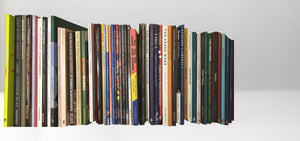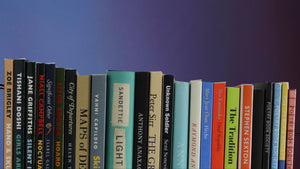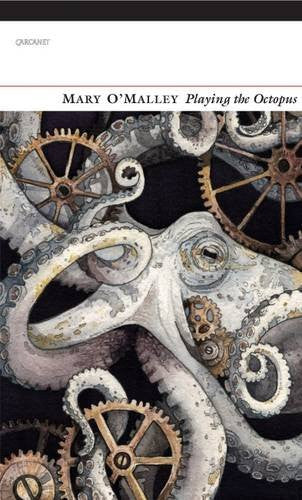Playing the Octopus
poetrybooks
‘He avoids the pipes. He has his reasons.
He has heard the story
Of the octopus who was locked into a room
For a week to practice.
When they let him out the pipes had learned
To play the octopus.
The thing about musicians is
They respond to glory.’
In Playing the Octopus, her eighth collection of poems, Mary O’Malley’s sensitivity to the spirit of Ireland’s west coast is as attuned as ever. In a world both earthen and dreamlike, bodily and mythical, a trout is seen to ‘swallow light through his skin’, a wolf ‘howls the great open vowel of his need’, and in the emptiness where a tree once stood, ‘a tree-shaped brightness dances’. Over the course of the collection, O’Malley twins the Irish west coast with the American east coast, Inis Mór with Coney Island, the parish with the metropolis, the pipes with the axe, each offering its own comfort and wonder. Sylvia Plath, Lois Lane and Antigone feature in an unlikely cast of heroines through which O’Malley tests the mythologies of motherhood and femininity (‘no mother is ever good enough until she’s dead’, writes the poet, with characteristic wit). Playing the Octopus is a body of writing buoyed by the redemptive power and sustaining joy of music, and it closes with O’Malley’s translations of the Irish poet Seán Ó Ríordáin and the Spaniard Federico García Lorca.
He has heard the story
Of the octopus who was locked into a room
For a week to practice.
When they let him out the pipes had learned
To play the octopus.
The thing about musicians is
They respond to glory.’
In Playing the Octopus, her eighth collection of poems, Mary O’Malley’s sensitivity to the spirit of Ireland’s west coast is as attuned as ever. In a world both earthen and dreamlike, bodily and mythical, a trout is seen to ‘swallow light through his skin’, a wolf ‘howls the great open vowel of his need’, and in the emptiness where a tree once stood, ‘a tree-shaped brightness dances’. Over the course of the collection, O’Malley twins the Irish west coast with the American east coast, Inis Mór with Coney Island, the parish with the metropolis, the pipes with the axe, each offering its own comfort and wonder. Sylvia Plath, Lois Lane and Antigone feature in an unlikely cast of heroines through which O’Malley tests the mythologies of motherhood and femininity (‘no mother is ever good enough until she’s dead’, writes the poet, with characteristic wit). Playing the Octopus is a body of writing buoyed by the redemptive power and sustaining joy of music, and it closes with O’Malley’s translations of the Irish poet Seán Ó Ríordáin and the Spaniard Federico García Lorca.

MEMBERS ENJOY 25% OFF ALL POETRY BOOKS

Join the Poetry Book Society for 25% off all books
Join the Poetry Book Society for 25% off all books

